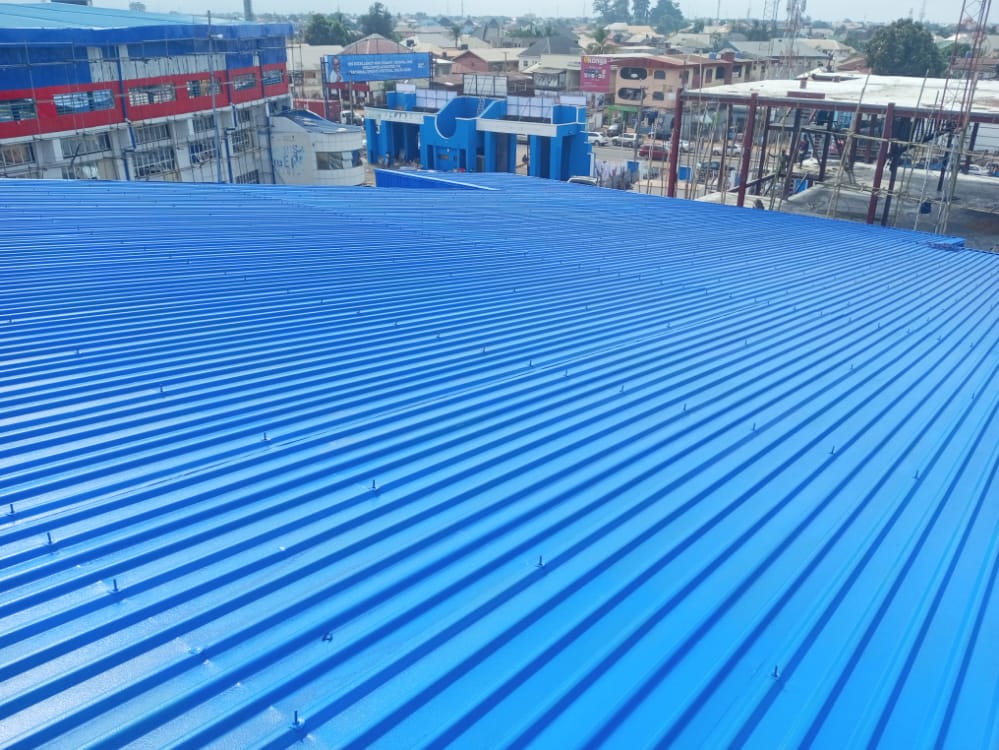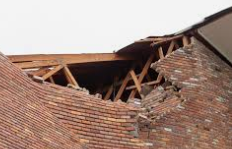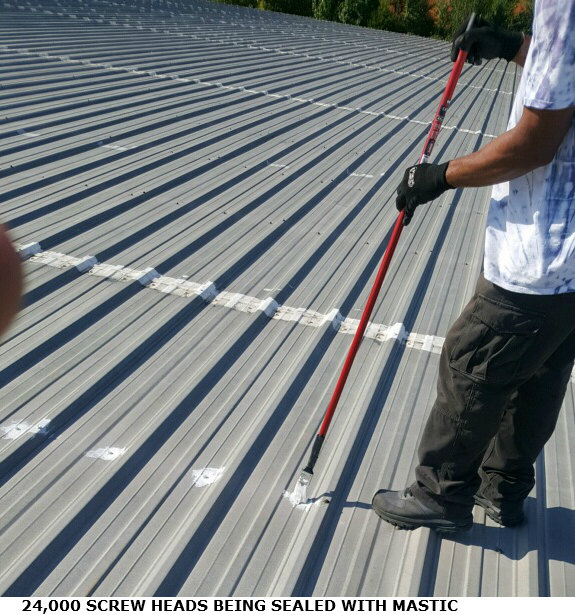The Nigerian roofing industry is a dynamic and evolving sector that plays a crucial role in the country’s construction and real estate markets. As one of the most populous countries in Africa, with a growing urban population and an expanding middle class, Nigeria presents significant opportunities for entrepreneurs and investors in the roofing industry.
However, these opportunities come with their own set of challenges. In this detailed blog post, we will explore the key aspects of the Nigerian roofing industry, highlighting the opportunities it offers and the challenges that industry players must navigate to succeed.
Overview of the Nigerian Roofing Industry
The roofing industry in Nigeria is an integral part of the construction sector, which contributes significantly to the nation’s Gross Domestic Product (GDP). The industry encompasses the manufacture, supply, and installation of roofing materials, as well as the provision of related services such as repairs, maintenance, and consultancy.
Key Players in the Industry
The Nigerian roofing industry is made up of various stakeholders, including:
- Manufacturers and Suppliers: These are companies that produce and distribute roofing materials such as metal sheets, shingles, tiles, and roofing accessories. Major manufacturers include foreign multinationals as well as local companies that cater to both the high-end and low-cost segments of the market.
- Roofing Contractors: These are businesses and individuals who specialize in the installation and repair of roofs. Roofing contractors often work closely with construction companies, real estate developers, and individual homeowners.
- Distributors and Retailers: Distributors and retailers play a crucial role in the supply chain by making roofing materials available to end-users. They operate through physical stores, online platforms, and distribution networks.
- Regulatory Bodies: Various government agencies and professional bodies regulate the roofing industry in Nigeria, ensuring that materials and practices meet safety and quality standards.
Popular Roofing Materials in Nigeria
In Nigeria, several types of roofing materials are commonly used, each with its own advantages and disadvantages:
- Aluminum Roofing Sheets: Lightweight, durable, and resistant to corrosion, aluminum roofing sheets are a popular choice for residential and commercial buildings. They are available in various colors and profiles, making them aesthetically appealing.
- Stone-Coated Steel Roofing: Known for its durability and elegant appearance, stone-coated steel roofing is often used in high-end residential and commercial projects. It provides excellent protection against harsh weather conditions.
- Asphalt Shingles: Asphalt shingles are an affordable and versatile roofing option that is gaining popularity in Nigeria. They are easy to install and come in a variety of styles and colors.
- Clay and Concrete Tiles: These roofing materials are favored for their durability and traditional aesthetic appeal. They are commonly used in areas with hot climates due to their thermal insulating properties.
- Thatch Roofing: Thatch roofing, made from natural materials like palm leaves and grasses, is traditional in rural areas. While it is less common in urban settings, it is still used in eco-friendly and culturally significant projects.
Opportunities in the Nigerian Roofing Industry
1. Growing Urbanization and Housing Demand
Nigeria’s population is rapidly urbanizing, with more people moving to cities in search of better economic opportunities. This urban migration is driving demand for new housing and commercial buildings, which in turn fuels the demand for roofing materials and services. The government’s push for affordable housing schemes also presents opportunities for roofing companies to supply materials for large-scale projects.
2. Expanding Middle Class and Increased Disposable Income
The rise of the middle class in Nigeria is leading to increased disposable income and a demand for higher-quality housing. Homeowners are increasingly willing to invest in durable and aesthetically pleasing roofing solutions, creating opportunities for premium roofing products such as stone-coated steel tiles and asphalt shingles.
3. Government Infrastructure Projects
The Nigerian government has initiated several infrastructure projects aimed at improving the country’s roads, bridges, schools, and healthcare facilities. These projects often require roofing materials and services, providing a steady stream of business for companies in the roofing industry.
4. Innovation and Technology Adoption
The roofing industry in Nigeria is gradually embracing new technologies and innovations, such as energy-efficient roofing solutions, eco-friendly materials, and advanced installation techniques. Companies that adopt these innovations can differentiate themselves in the market and cater to the growing demand for sustainable building practices.
5. Export Opportunities
Nigeria’s roofing industry has the potential to tap into export markets in neighboring West African countries. By leveraging local manufacturing capabilities and competitive pricing, Nigerian roofing companies can expand their reach beyond the domestic market and increase their revenue streams.
6. Rising Awareness of Climate Resilience
With the increasing impact of climate change, there is a growing awareness of the need for buildings to be resilient to extreme weather conditions. This has led to a demand for roofing materials that can withstand heavy rainfall, strong winds, and intense heat. Companies that offer climate-resilient roofing solutions have a significant opportunity to capture market share.
7. Training and Skill Development
There is a need for skilled labor in the roofing industry, particularly in the areas of installation, maintenance, and repair. Companies that invest in training programs and skill development can not only improve the quality of their services but also position themselves as industry leaders.
Challenges in the Nigerian Roofing Industry
While the Nigerian roofing industry presents numerous opportunities, it also faces several challenges that must be addressed to ensure sustainable growth.
1. Fluctuating Raw Material Prices
The cost of raw materials, particularly metal, is subject to fluctuations due to global market conditions. These price variations can impact the profitability of roofing companies, especially those that rely heavily on imported materials. Managing these fluctuations requires effective pricing strategies and supply chain management.
2. Inadequate Infrastructure
In some parts of Nigeria, inadequate infrastructure, such as poor road networks and unreliable power supply, can hinder the transportation of roofing materials and the operation of manufacturing plants. This challenge can lead to delays in project completion and increased operational costs.
3. High Competition and Market Saturation
The Nigerian roofing market is highly competitive, with many players vying for a share of the market. This competition can lead to price wars, which may erode profit margins. Companies need to differentiate themselves through quality, innovation, and customer service to stand out in a crowded market.
4. Quality Control Issues
The prevalence of substandard roofing materials in the market is a significant concern. Some manufacturers and suppliers cut corners to reduce costs, resulting in products that do not meet safety and durability standards. This issue can lead to a loss of consumer confidence and damage the reputation of the industry as a whole.
5. Regulatory Challenges
Navigating the regulatory landscape in Nigeria can be complex, particularly when it comes to compliance with building codes, safety standards, and environmental regulations. Roofing companies must stay informed about regulatory changes and ensure that their products and practices meet all necessary requirements.
6. Skilled Labor Shortage
The roofing industry in Nigeria faces a shortage of skilled labor, particularly in the areas of installation, repair, and maintenance. This shortage can lead to delays in project completion and affect the overall quality of work. Addressing this challenge requires investment in training and skill development.
7. Climate and Environmental Factors
Nigeria’s diverse climate poses challenges for roofing materials and installations. In the southern regions, heavy rainfall and high humidity can lead to corrosion and leaks, while the northern regions experience extreme heat and dryness, which can cause materials to expand and contract. Roofing companies must consider these factors when selecting materials and designing roofing solutions.
8. Economic Instability
Nigeria’s economy is subject to fluctuations due to factors such as oil price volatility, inflation, and exchange rate instability. These economic challenges can impact consumer spending and investment in construction projects, leading to reduced demand for roofing materials and services.
Strategies for Success in the Nigerian Roofing Industry
To navigate the opportunities and challenges in the Nigerian roofing industry, companies need to adopt strategic approaches that will enable them to thrive in a competitive and dynamic market.
1. Invest in Quality Control
Maintaining high-quality standards is essential for building a strong reputation and gaining consumer trust. Roofing companies should invest in quality control processes, from sourcing raw materials to manufacturing and installation. This can include using certified materials, adhering to industry standards, and conducting regular inspections.
2. Differentiate Through Innovation
Innovation is key to staying ahead in the competitive Nigerian roofing market. Companies can differentiate themselves by offering innovative products and services, such as energy-efficient roofing solutions, climate-resilient materials, and advanced installation techniques. Investing in research and development can also lead to the creation of new products that meet the evolving needs of consumers.
3. Focus on Customer Service
Providing excellent customer service is crucial for building long-term relationships with clients and securing repeat business. Roofing companies should focus on understanding the needs and preferences of their customers, offering personalized solutions, and ensuring timely and professional service.
4. Develop a Strong Brand
Building a strong brand is essential for standing out in the crowded Nigerian roofing market. This involves creating a consistent brand identity, investing in marketing and advertising, and establishing a strong online presence. Companies should also leverage social media and digital marketing to reach a wider audience and engage with potential customers.
5. Expand to Export Markets
Exploring export opportunities in neighboring West African countries can provide roofing companies with additional revenue streams and reduce their reliance on the domestic market. Companies should conduct market research to identify potential export markets, understand the regulatory requirements, and build relationships with local distributors and partners.
6. Invest in Training and Skill Development
Addressing the skilled labor shortage in the roofing industry requires investment in training and skill development programs. Roofing companies can establish training centers, offer apprenticeships, and collaborate with vocational institutions to develop a skilled workforce. This not only improves the quality of work but also positions the company as an industry leader.
7. Adapt to Economic and Environmental Changes
The Nigerian roofing industry is influenced by economic and environmental factors that can impact business operations. Companies should develop strategies to adapt to these changes, such as diversifying their product offerings, investing in resilient materials, and implementing cost-saving measures. Staying informed about economic trends and climate forecasts can also help companies make informed decisions.
Conclusion
The Nigerian roofing industry offers significant opportunities for growth and success, driven by factors such as urbanization, rising demand for quality housing, and government infrastructure projects. However, the industry also faces challenges such as fluctuating raw material prices, competition, and regulatory complexities.
To succeed in this dynamic market, roofing companies must focus on quality control, innovation, customer service, branding, and skill development. By adopting these strategies, companies can navigate the challenges and capitalize on the opportunities in the Nigerian roofing industry, ensuring long-term growth and profitability.
In the end, understanding the Nigerian roofing industry’s opportunities and challenges is essential for any business looking to enter or expand in this market. With the right approach, Plusworld roofing and restoration is contributing to the development of Nigeria’s construction sector, providing durable and aesthetically pleasing roofing solutions for the nation’s growing population. Get in touch today!






